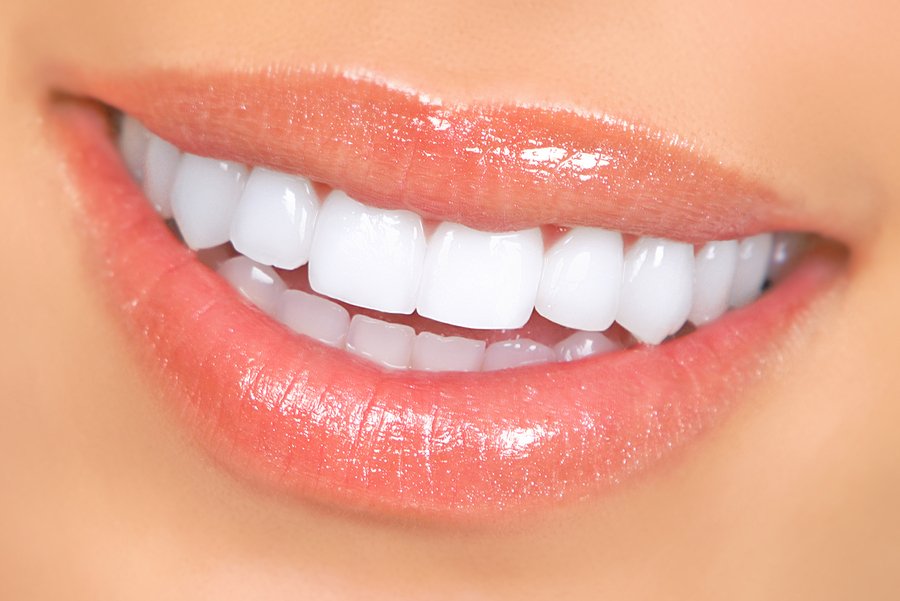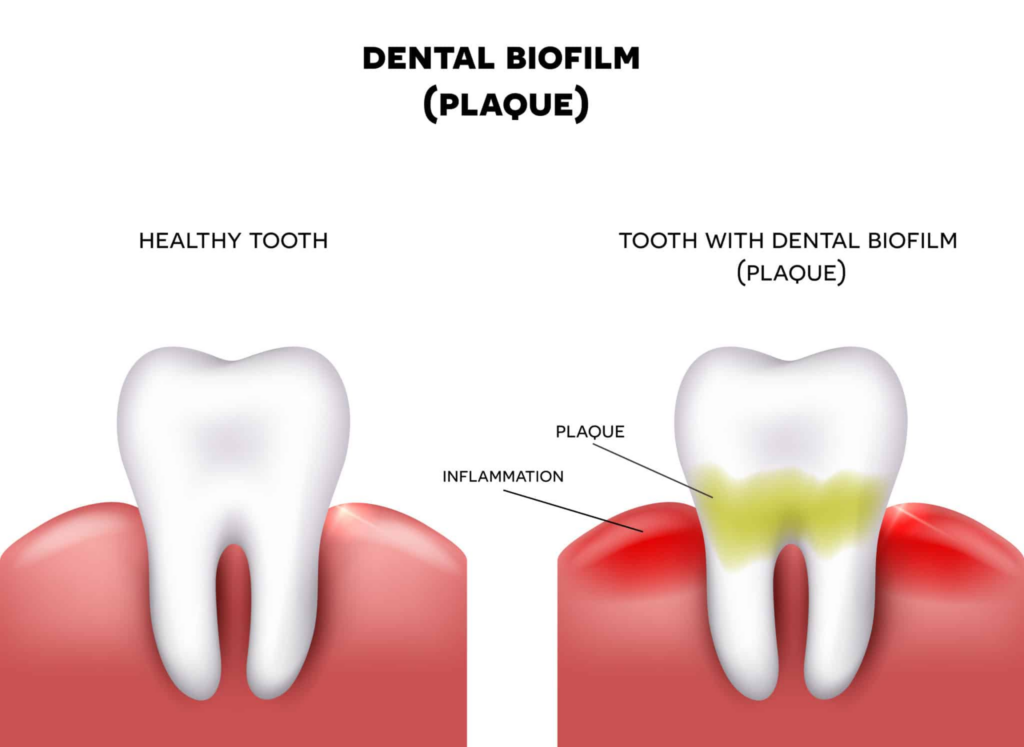Maintaining healthy gums is crucial for overall oral health. Gum disease, also known as periodontal disease, is a common condition that affects a significant portion of the population. It is caused by the buildup of plaque on teeth and gums, which can lead to inflammation and damage to the tissues that support teeth. In severe cases, gum disease can even result in tooth loss. However, there are several lifestyle habits for healthy gum that individuals can adopt to prevent gum disease.

Discover the synergy between Foods and Nutrients for Gum Line Healing and the transformative impact of lifestyle habits on maintaining healthy gums. Incorporating vitamin C-rich foods and practicing diligent oral hygiene fosters robust gums and supports optimal oral health.
A combination of good oral hygiene practices and healthy lifestyle choices can help keep your gums healthy. This includes brushing twice a day with fluoride toothpaste, flossing daily, and visiting your dentist for regular checkups. Additionally, certain dietary choices such as avoiding sugary foods and drinks can also contribute to maintaining healthy gums. In this article, we will explore scientifically proven various lifestyle habits to promote healthy gums and prevent gum disease.
The Importance of Oral Hygiene
Maintaining proper oral hygiene is crucial to preventing the development of periodontal diseases, which can lead to tooth loss and other serious health complications. Preventive measures such as brushing twice daily, flossing at least once a day, and using an antimicrobial mouthwash can help remove bacterial plaque that accumulates on teeth and gums. These simple practices can make a significant difference in maintaining healthy gums.
In addition to regular oral hygiene practices, there are several home remedies that can aid in gum health. Rinsing with warm saltwater, applying a cold compress to swollen gums, or using natural oils like tea tree oil or peppermint oil may help reduce inflammation and promote healing. While these remedies can provide temporary relief for minor gum issues, it is important to note that they should not replace professional dental care.
Preventive measures combined with occasional home remedies are essential for maintaining healthy gums. However, it is important to remember that these practices alone cannot guarantee optimal gum health. The role of diet in gum health must also be considered as certain foods high in sugar or acidity can contribute to the development of periodontal diseases. Therefore, incorporating a balanced diet along with regular visits to the dentist are necessary steps towards achieving optimal gum health.

The Role of Diet in Gum Health
The dietary choices one makes can have a significant impact on the overall health of their oral cavity, specifically regarding the condition of periodontal tissues. Here are three nutritional habits that may help maintain healthy gums:
https://www.health.harvard.edu/topics/nutrition
- Incorporate Nutritional Supplements: Many supplements contain essential vitamins and minerals for gum health, such as vitamin C, calcium, and zinc. Vitamin C promotes collagen production in the gums to prevent bleeding and inflammation, while calcium and zinc help rebuild weakened gum tissue.
- Practice Hydration Techniques: Drinking enough water throughout the day is essential for good oral health because it helps wash away food particles that can cause bacterial buildup in the mouth. Additionally, staying hydrated can promote saliva production which contains enzymes that protect against tooth decay and gum disease.
- Avoid Sugary Foods: Consuming sugary foods or drinks increases the risk of developing cavities because bacteria in the mouth use sugar to produce acid that erodes enamel over time. This erosion can lead to gum recession and an increased risk of periodontal disease.
Incorporating these simple habits into your daily routine could improve your overall oral health significantly. In addition to practicing proper oral hygiene techniques like brushing twice a day and flossing regularly, focusing on nutrition is crucial for maintaining healthy gums.
Focusing on proper nutrition is only one aspect of maintaining good oral hygiene; another influential factor is smoking’s effect on gum health. While some people believe that smoking tobacco helps alleviate stress or anxiety symptoms, it’s important to note that smoking has serious implications for our teeth’ health beyond just bad breath or staining them yellow/brownish coloration after prolonged exposure over time”.

The Impact of Smoking on Gum Health
Smoking has been shown to have negative effects on the health of periodontal tissues. Research indicates a correlation between smoking and an increased risk of developing gum disease. Smoking also impacts the body’s immune system, making it harder for the body to fight off infections like gum disease.
The nicotine in cigarettes can also cause blood vessels to constrict, which limits the amount of blood flow to gums and other tissues in the mouth. This reduced blood flow hinders the growth of new tissue and slows down healing processes, which can worsen existing gum problems. Additionally, smoking weakens bones in general, including jawbones that support teeth.
Quitting smoking is one way to decrease the risk of developing gum disease and prevent further damage caused by tobacco use. There are many quitting options available that can help individuals overcome their addiction to nicotine. These include nicotine patches, gums or lozenges containing low doses of nicotine, as well as behavioral therapy or support groups aimed at helping smokers quit their habit for good. In addition to these quitting options, adopting a healthy lifestyle that includes regular exercise and a balanced diet can also improve overall oral health.

The Role of Stress in Gum Health
Research has shown that stress can negatively impact the immune system, which in turn can have detrimental effects on oral health, particularly in relation to gum disease. When the body is under stress, it releases hormones that increase inflammation throughout the body. As a result, gum tissue becomes more susceptible to infections and diseases such as periodontitis.
Stress management techniques such as mindfulness practices have been found to be effective in reducing inflammation and promoting overall well-being. Mindfulness meditation involves focusing one’s attention on the present moment without judgment or distraction. This practice has been shown to reduce stress levels and lower inflammatory markers in the body, which can help prevent gum disease.
Incorporating mindfulness techniques into daily routine can promote healthy gums and overall well-being. By reducing stress levels through mindfulness practices like mediation or yoga, individuals may experience less inflammation throughout their bodies, including their gums. In addition, maintaining good oral hygiene habits like brushing twice a day with fluoride toothpaste, flossing daily and visiting the dentist regularly are important for preventing gum disease. Incorporate essential lifestyle habits for healthy gums and overall oral well-being to maintain a confident and radiant smile.

The Benefits of Drinking Water
Drinking water has been found to have numerous benefits for oral health, making it a crucial component of maintaining overall well-being. Proper hydration is essential to keeping the mouth moist, which helps prevent the growth of harmful bacteria that can lead to gum disease. Additionally, drinking water after meals helps wash away food particles and other debris that may be stuck in between teeth or along the gum line.
To reap the full benefits of drinking water for gum health, it is important to establish good drinking habits. Experts recommend consuming at least eight glasses of water each day to keep the body hydrated and maintain healthy gums. It is also helpful to carry a refillable water bottle throughout the day as a reminder to drink more fluids.
Incorporating adequate amounts of water into daily routines does not only benefit oral health but also enhances overall physical and mental well-being. Drinking enough fluids aids in digestion, promotes skin health and improves cognitive function. By regularly hydrating with water, individuals can improve their quality of life while simultaneously preventing gum problems such as inflammation or bleeding gums. Keeping up with proper hydration through regular consumption of plain water is an excellent way to maintain healthy gums and promote overall wellness.

The Importance of Chewing Sugar-Free Gum
Chewing sugar-free gum is an effective way to stimulate saliva production, which plays a crucial role in maintaining good oral health. Saliva helps neutralize harmful acids produced by bacteria in the mouth and washes away food particles that can contribute to plaque buildup. By reducing plaque buildup, chewing sugar-free gum may also help prevent tooth decay and gum disease. These benefits make it a simple yet valuable addition to any dental hygiene routine.

Stimulating Saliva Production
Increasing the production of saliva can aid in maintaining optimal oral health. Saliva is a natural defense mechanism that helps to neutralize acid and wash away food particles and bacteria that accumulate in our mouth. This process is important because when plaque builds up, it can lead to gingivitis, or inflammation of the gums, which can eventually progress into periodontitis if left untreated. The good news is that there are many ways to stimulate saliva production naturally.
One way to stimulate saliva production is by consuming foods that are high in fiber such as apples, carrots, celery, and nuts. These foods require more chewing which stimulates the salivary glands to produce more saliva. Another technique for stimulating saliva production involves using proper chewing techniques while eating. By taking smaller bites and thoroughly chewing your food before swallowing, you give your salivary glands time to produce enough saliva to help break down your food properly. With these simple lifestyle habits for healthy gum, you can help maintain healthy gums by promoting natural salivary flow and preventing plaque buildup.
Reducing plaque buildup is also an important step towards optimal oral health. Plaque forms when bacteria in the mouth mix with sugars from food or drinks creating a sticky film on teeth and gum lines. If not removed regularly through brushing and flossing, it can harden into tartar which requires professional cleaning from a dental hygienist or dentist. Therefore, incorporating healthy lifestyle habits such as stimulating salivary flow along with regular brushing and flossing can help prevent the buildup of plaque leading to healthier gums overall.
Reducing Plaque Buildup
Effective methods to prevent the accumulation of plaque on teeth and gum lines are crucial for maintaining optimal oral health. Plaque is a sticky film of bacteria that forms on teeth and can lead to various dental problems, including gum disease, cavities, and bad breath. To reduce plaque buildup, individuals should strive to practice good oral hygiene habits regularly.
Oral hygiene tips include brushing teeth twice daily with fluoride toothpaste, flossing at least once a day, using mouthwash to kill bacteria in hard-to-reach areas of the mouth, and avoiding foods high in sugar or carbohydrates that can cling to teeth. Dental checkups are also important for preventing plaque buildup as dentists can identify potential issues early on before they become more severe. Regular cleanings from a dental hygienist every six months can help remove any stubborn plaque or tartar buildup that may be missed during at-home care. By following these simple steps, individuals can significantly reduce their risk of developing dental problems associated with plaque buildup while promoting better overall oral health.

The Benefits of Regular Exercise
Regular exercise has been shown to have positive effects on various aspects of overall health, including cardiovascular health and immune function, which may contribute to a healthier oral environment. Improving circulation is one of the key benefits of regular exercise. This allows for better delivery of nutrients and oxygen to the gums and teeth, promoting their overall health.
Boosting immunity is another way that regular exercise can benefit oral health. A strong immune system can help fight off harmful bacteria in the mouth that can lead to gum disease and other oral health issues. Additionally, regular exercise may also reduce inflammation throughout the body, including in the gums.
Incorporating regular physical activity into your lifestyle habits for healthy gums can be an important step towards maintaining good oral hygiene. However, it should be noted that exercising alone cannot replace proper dental care such as brushing twice a day and flossing daily. By combining healthy lifestyle habits with conscientious dental care practices, you can achieve optimal oral health while also maintaining overall wellness.

Maintaining Overall Health and Wellness
Maintaining overall health and wellness requires a comprehensive approach that involves various lifestyle modifications and healthcare interventions. Poor oral health has been linked to several chronic diseases, including heart disease, diabetes, and certain cancers. Therefore, it is imperative to adopt healthy habits that promote overall well-being, which can benefit not only the body but also the gums.
To maintain good oral health, one should practice mindful eating habits. This means consuming foods rich in nutrients that are essential for gum health such as calcium, vitamin D, and vitamin C. Additionally, limiting sugary drinks and snacks can help prevent tooth decay and promote healthy gums. Furthermore, staying hydrated by drinking plenty of water can help flush out harmful bacteria from the mouth.
In addition to eating mindfully, practicing good sleep hygiene can also contribute to maintaining overall health and wellness. Sleep deprivation has been linked to an increased risk of periodontal disease due to its impact on the immune system’s ability to fight off infections effectively. It is recommended that adults get at least seven hours of sleep each night while children require more depending on their age. A good night’s sleep promotes healing throughout the body by allowing tissues time for repair and regeneration.
Maintaining a healthy lifestyle through mindful eating habits and proper sleep hygiene practices can have significant benefits for both general wellbeing as well as maintaining healthy gums specifically. Incorporating these tips into daily routines will lead individuals towards living healthier lives with stronger teeth and healthier gums in the long-term without having to make major changes or take drastic action outside of natural human rhythms needed for sustained vitality.
Further Entities
- https://en.wikipedia.org/wiki/Dental_floss
- https://www.nidcr.nih.gov/health-info/gum-disease
- https://www.health.harvard.edu/topics/nutrition
Frequently Asked Questions
Can genetics play a role in gum health?
Genetics can play a significant role in gum health. Studies have shown that certain genetic variations may increase an individual’s susceptibility to periodontal disease, which is the leading cause of tooth loss worldwide. These variations may affect the immune response and inflammatory pathways, making it easier for bacteria to invade and damage gum tissue. Moreover, research has found that genetic factors may interact with environmental factors, such as smoking or poor oral hygiene practices, to further increase the risk of gum disease. Therefore, understanding the influence of genetics on oral health is crucial for developing personalized prevention and treatment strategies that take into account an individual’s unique genetic makeup and lifestyle habits.
What are some common signs and symptoms of gum disease?
Gum disease, also known as periodontal disease, is a common oral health problem that affects many people worldwide. One of the most common signs of gum disease is bleeding gums, which can occur when brushing or flossing teeth. Receding gums are another sign of gum disease and can lead to sensitivity and tooth loss if left untreated. These symptoms occur due to inflammation caused by bacteria in plaque buildup on teeth and around gums. It’s important to visit a dentist regularly and maintain good oral hygiene practices such as brushing twice daily, flossing regularly, using mouthwash, and eating a healthy diet to prevent gum disease from developing or progressing.
How often should I visit the dentist for a check-up?
Regular visits to the dentist for check-ups are crucial in maintaining optimal oral health. Dental cleanings, which remove plaque and tartar buildup, can prevent the onset of gum disease and other dental problems. While some individuals may be hesitant to schedule routine appointments due to financial concerns, preventive measures such as regular cleanings can ultimately save money in the long run by addressing potential issues before they become more serious and require costly procedures. By prioritizing regular dental check-ups, individuals can take proactive steps towards achieving healthy teeth and gums.
Are there any natural remedies that can improve gum health?
Oil pulling and herbal mouthwashes have been suggested as natural remedies to improve gum health. Oil pulling involves swishing oil, typically coconut or sesame oil, in the mouth for up to 20 minutes before spitting it out. Some studies suggest that this practice can reduce plaque buildup and gingivitis. Herbal mouthwashes, which contain ingredients such as tea tree oil, peppermint oil, and eucalyptus oil, have also shown promise in reducing inflammation and improving gum health. While more research is needed to fully understand the effectiveness of these natural remedies, incorporating them into a daily oral hygiene routine may provide additional benefits for overall gum health.
Can certain medications have a negative impact on gum health?
Medications may have a negative impact on gum health. Certain medications, including anticonvulsants, calcium channel blockers, and immunosuppressants, have been linked to gingival overgrowth or enlargement of the gums. This can lead to pockets between the teeth and gums where bacteria can accumulate and cause periodontal disease. In addition, some medications may cause dry mouth, which can increase the risk of tooth decay and gum disease as saliva helps wash away food particles and bacteria from the mouth. Therefore, it is important for individuals taking medications to inform their dentist about any prescription or over-the-counter drugs they are taking in order to minimize any potential negative effects on oral health.
Conclusion
In conclusion, maintaining healthy gums is crucial for overall oral health and wellness. Proper oral hygiene practices such as brushing twice a day, flossing daily, and regular dental check-ups are essential in preventing gum disease. A balanced diet rich in vitamins and minerals can also contribute to healthy gums. Avoiding smoking and managing stress levels can further promote gum health.
Drinking water and chewing sugar-free gum can also have positive effects on gum health. Regular exercise not only benefits overall physical health but may also improve gum health by reducing inflammation in the body. It is important to remember that maintaining good overall health and wellness is key to promoting healthy gums. By incorporating these lifestyle habits for healthy gums into daily routines, individuals can take proactive steps towards achieving optimal oral health.




